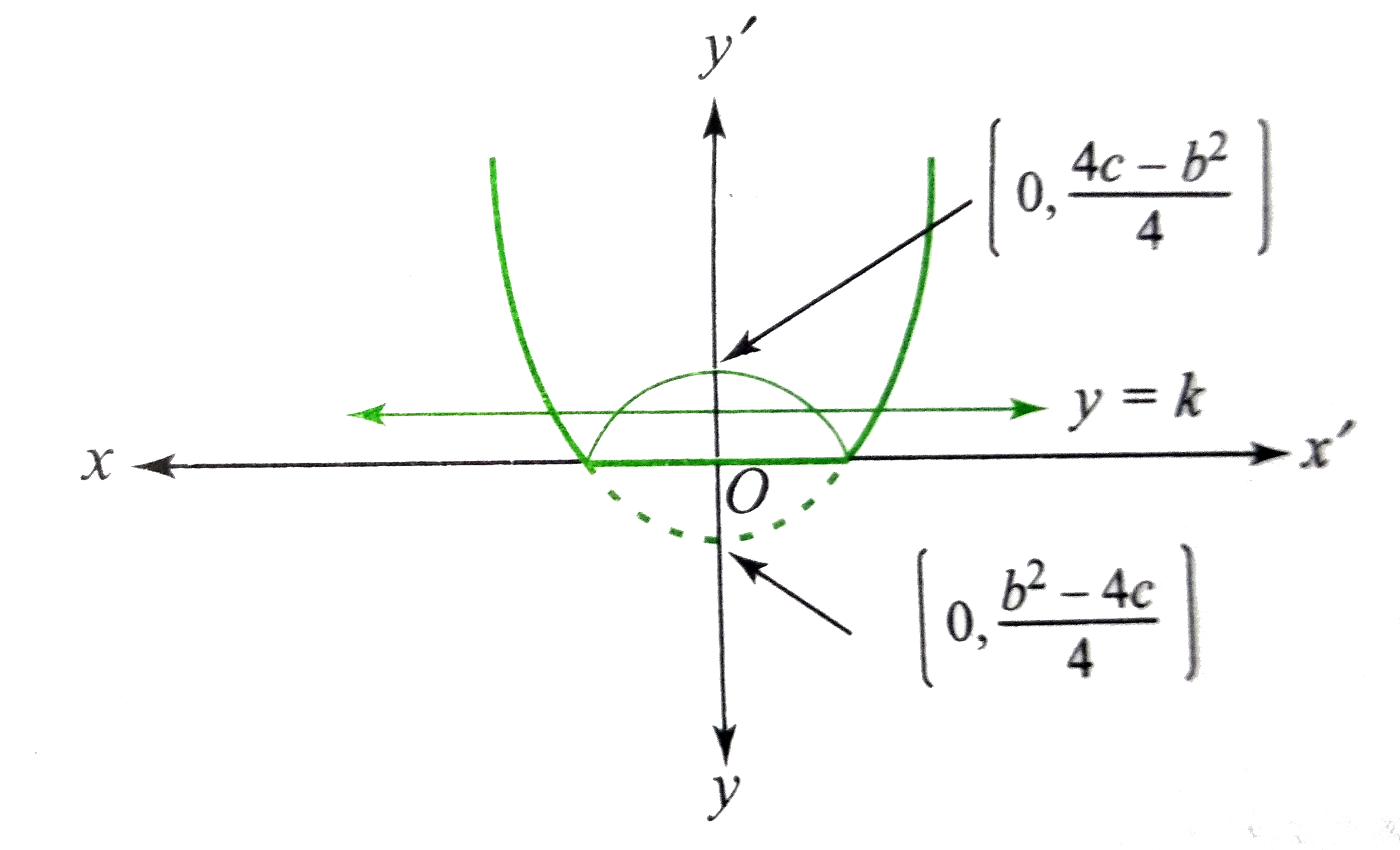If the equation ∣∣x2+bx+c∣∣=k has four real roots, then b2−4c>0and0<k<4c−b24 b2−4c<0and0<k<4c−b24 b2−4c>0andk>4c−b24 none of these
b2−4c>0and−<k<4c−b24
b2−4c<0and−<k<4c−b24
b2−4c>0and−k>4c−b24
none of these
The correct Answer is:1

For the equation to have four real roots, the line y = k must
intersect y=∣∣x2=bx+c∣∣ at four point.
∴D>0andk∈(0,−D4)
Topper's Solved these Questions
- BOOK - CENGAGE ENGLISHCHAPTER - THEORY OF EQUATIONSEXERCISE - Multiple Correct Answer Type38videos
THEORY OF EQUATIONS
- BOOK - CENGAGE ENGLISHCHAPTER - THEORY OF EQUATIONSEXERCISE - Linked Comprechension Type37videos
THEORY OF EQUATIONS
- BOOK - CENGAGE ENGLISHCHAPTER - THEORY OF EQUATIONSEXERCISE - CONCEPT APPLICATION EXERCISE 2.139videos
THEORY OF EQUATIONS
- BOOK - CENGAGE ENGLISHCHAPTER - STRAIGHT LINESEXERCISE - ARCHIVES (NUMERICAL VALUE TYPE)1videos
STRAIGHT LINES
- BOOK - CENGAGE ENGLISHCHAPTER - THREE DIMENSIONAL GEOMETRYEXERCISE - All Questions294videos
THREE DIMENSIONAL GEOMETRY
Similar Questions
If the equation ∣∣x2+bx+c∣∣=k has four real roots, then a. b2−4c>0 and 0<k<4c−b24 b. b2−4c<0 and 0<k<4c−b24 c. b2−4c>0 and k>4c−b24 d. none of these
View SolutionIf the equation ∣∣x2+bx+c∣∣=k has four real roots, then
A. b2−4c>0and0<k<4c−b24
B. b2−4c<0and0<k<4c−b24
C.b2−4c>0andk>4c−b24
D. none of theseView SolutionIf the equation ax2+2bx−3c=0 has no real roots and (3c4)<1+b, then c<0 (b) c>0 c=0 (d) None of these
View SolutionIf the equation x2+4x+k=0 has real and distinct roots, then
(a)k<4 (b) k>4 (c) k≥4 (d) k≤4View SolutionGiven that ax2+bx+c=0 has no real roots and a+b+c<0, then c≠0 b. c<0 c. c>0 d. c=0
View SolutionGiven that ax2+bx+c=0 has no real roots and a+b+c<0, then c≠0 b. c<0 c. c>0 d. c=0
View SolutionIf the equation ax2+bx+c=x has no real roots, then the equation a(ax2+bx+c)2+b(ax2+bx+c)+c=x will have a. four real roots b. no real root c. at least two least roots d. none of these
View SolutionIf the roots of x2−bx+c=0 are two consecutive integers, then b2−4c is (a)0 (b) 1 (c) 2 (d) none of these
View SolutionIf the equation ax2+bx+c=0(a>0) has two real roots αandβ such that α<−2 and β>2, then which of the following statements is/are true? (a)a−|b|+c<0 (b)c<0,b2−4ac>0 (c) 4a−2|b|+c<0 (d) 9a−3|b|+c<0
View SolutionIf the equation ax2+bx+c=0,a,b,c,∈R have none-real roots, then c(a−b+c)>0 b. c(a+b+c)>0 c. c(4a−2b+c)>0 d. none of these
View Solution

